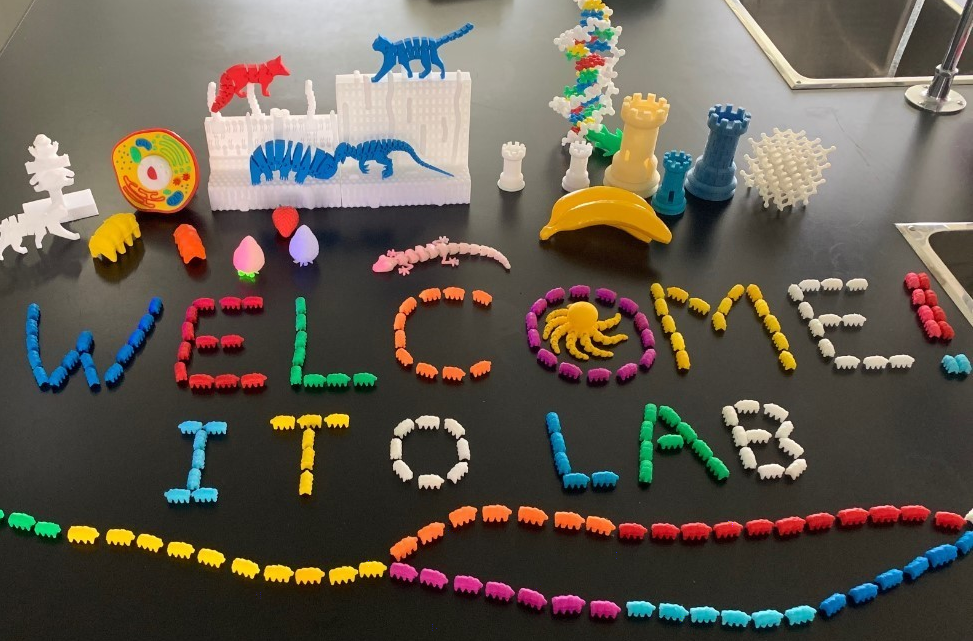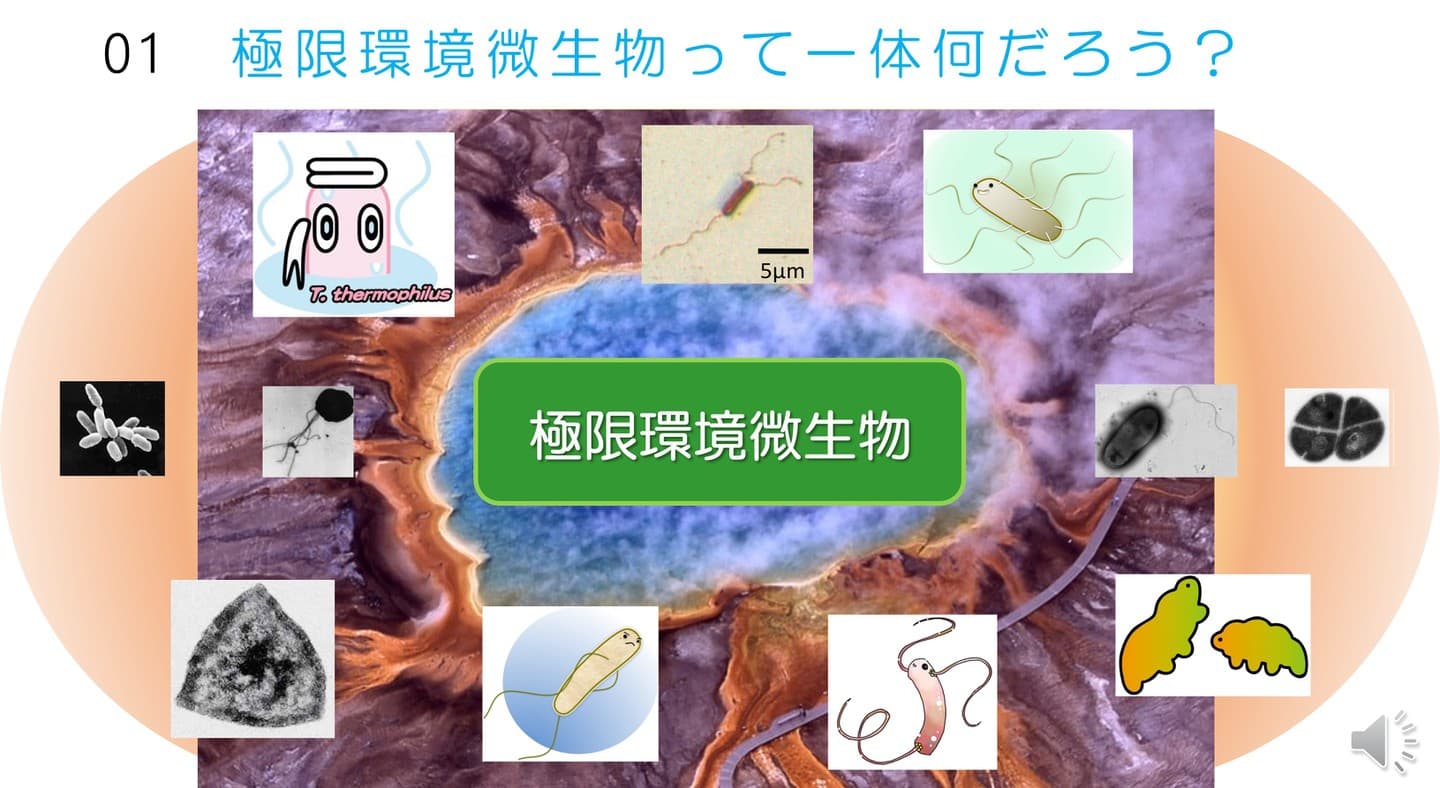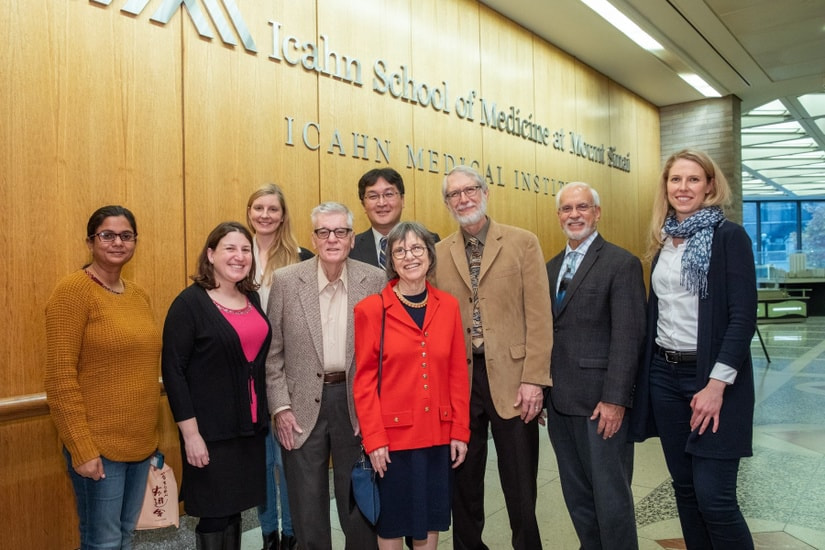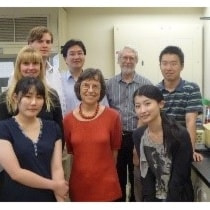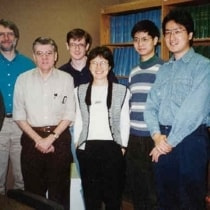Laboratory of Life Sciences for Extremophiles
Faculty of Life Sciences, Graduate School of Life Sciences
Toyo University (Masahiro Ito's lab)
What is the Laboratory of Life Sciences for Extremophiles?
The extreme environment is a harsh environment that we think "Life will not be able to live." However, (micro) organisms also inhabit such an environment.
Why does Life live in such a harsh environment?
It must go back to the history of the earth. It is said that 4.6 billion years have passed since the birth of the Earth, and 3.8 billion years have passed since the first Life on the Earth was born. For this long time, the "earth" we live in was not the "calm" environment we have today. Life on Earth has been extinct many times, including the Snowball Earth, which covers the entire globe with glaciers, the giant eruption "Super Plume," and the mass extinction of Life due to the fall of meteorites.
It is thought that life on earth has evolved by adapting to the "trials" = "harsh environment" that the Earth gives. In such an environment, "extremophiles" were born.
"Extremophiles" have "special abilities" that we do not have. For example, "Thermophiles love temperatures above 100 ° C!", "Radio-tolerant bacteria don't mind being exposed to radiation!", "Alkaliphiles like a strongly alkaline environment!" "Halophiles don't mind being salted!"
In the Laboratory of Life Sciences for Extremophiles,
➀ What kind of “special ability” do extremophiles have?
➁ What kind of mechanism is that ability?
③ Can that ability be used in our lives?
We are doing research every day on the theme.
We will study extremophiles living in harsh environments, unravel their skillful survival strategies, and use them in our society.
Research keywords
(Large group) Extremophiles
(Medium group) Alkaliphiles, symbiotic microorganisms, hyperthermophiles, halophiles, high concentration Cesium resistant bacterium
(Detailed grouping) Biofuel production, search for enzyme inhibitors, elucidation and its social implementation of Cesium resistance mechanism, highly alkaline environmental adaptation mechanism, membrane protein, applied research, 3D printer, Flagellar motor (nanomachine)
Since April 2021, I have been appointed as the project leader of the Toyo University Top Priority Research Program named Bio-Resilience Research Project.
In April 2020, the Bio-Resilience Research Project was launched based on the theme "Research to implement advanced science of extremophiles in society to achieve SDGs," adopted in Toyo University's 2021 Top Priority Research Program. One of the characteristics of Toyo University is its strength in research on extremophiles, which can grow even in harsh extreme environments and are attracting attention as a new biological resource. In this project, we aim to contribute to the goals set by the SDGs by returning to society the cutting-edge science and knowledge of extremophile research, which is our strength.

